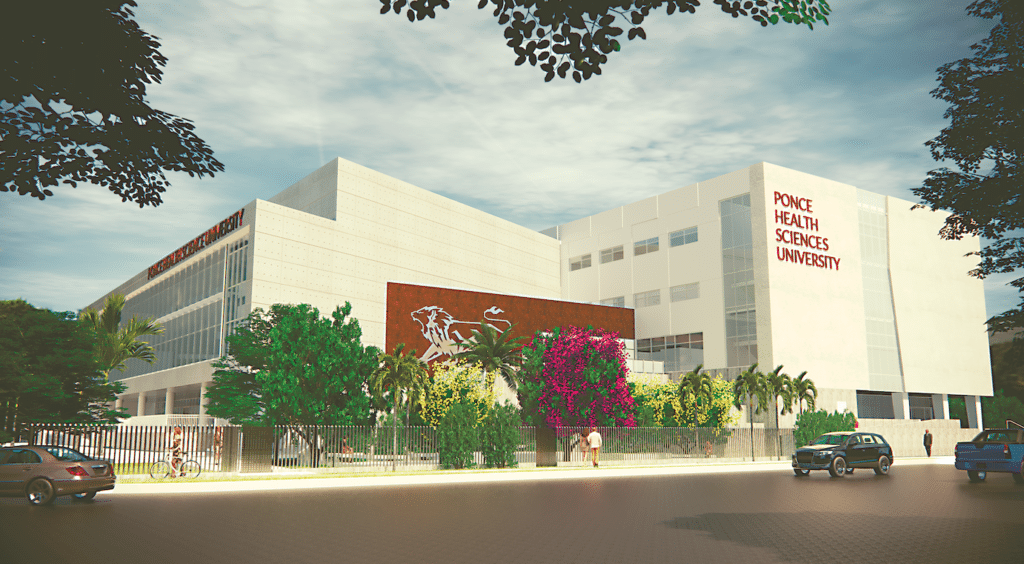The development of a new campus at the Ponce Health Sciences University (PHSU) was a natural progression for the premier academic medical institution, given its growth thanks to first-rate faculty and comprehensive curriculum.
“It allows us to unleash our potential at PHSU, empowering faculty and students with the facilities and resources they need to thrive,” said Dr. David Lenihan, president and CEO of PHSU. “We will be able to accelerate our growth and, in turn, help transform Ponce into a global academic, clinical and research health center.”
The expansion, which will generate more than 450 direct and more than 1,000 indirect jobs, will also help address the ever present issue that is the shortage of doctors in Puerto Rico, as well as the shortage of bilingual doctors stateside.
“By helping to increase the number of students who stay in Puerto Rico to study medicine and the doctors that we graduate who stay on the island, we are providing people in Puerto Rico more access to high-quality medical care, and improving the healthcare outcomes on the island,” Dr. Lenihan said. “This expansion will also help us attract the best academic talent to teach at the university, faculty that want to join PHSU because of the quality of our resources.”
PHSU has 1,500 students in four academic schools: School of Medicine, Behavioral and Brain Science, Public Health Program, and the School of Nursing. With 150 students per class, PHSU has the highest number of students in medical school of any medical education institution in Puerto Rico.
Dr. José A. Torres Ruiz, chancellor of PHSU, added that innovations in educational styles are reflected in the high level of performance of PHSU in national licensing examinations.
“We have a dynamic curriculum where, for example, conferences are recorded beforehand, students have access to them and then go into the classroom to discuss the material,” explained Dr. Torres Ruiz. “Besides leading to great scores by our students in licensing tests, it also helped us to address the challenges of academics in the pandemic, and allow our students to continue their education.”
Source: Caribbean Business



